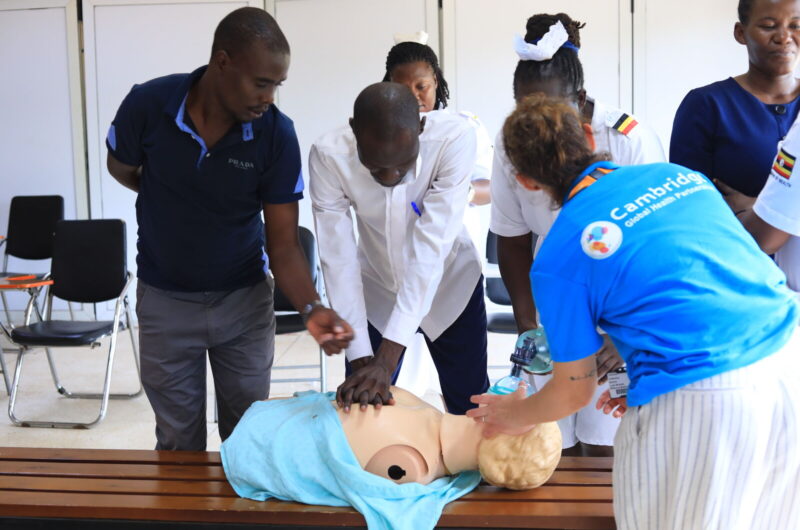Catherine Barlow is Lead Midwife for Maternal Medicine at The Rosie, Cambridge University Hospitals Trust. Here she reflects on a week in Kampala teaching critical care skills for obstetric patients.
“As a dual registered nurse/midwife with a background in critical care, I am really lucky that I have worked at Cambridge University Hospitals (CUH) with several others who have been involved with CGHP in different workstreams. I was inspired to get involved in global health by them, as they have all spoken very highly of the experience.
I became involved with CGHP and the SCALE project by participating in an online ‘grand round’ session on obstetric emergencies. SCALE is part of the broader Kampala-Cambridge Health Partnership, and its particular focus is on supporting the development of critical care in Uganda and enhancing the skills and knowledge of both Ugandan and UK critical care health providers.
I spent a week in Kampala working with Ugandan partners at Kawempe National Referral Hospital (KNRH), and I have never experienced anything like it. It was quite honestly one of the best weeks of my life. Not only was it an amazing opportunity to visit somewhere that I would not have visited otherwise, I was completely embraced by the team at KNRH and learnt so much from them about resilience and resourcefulness.
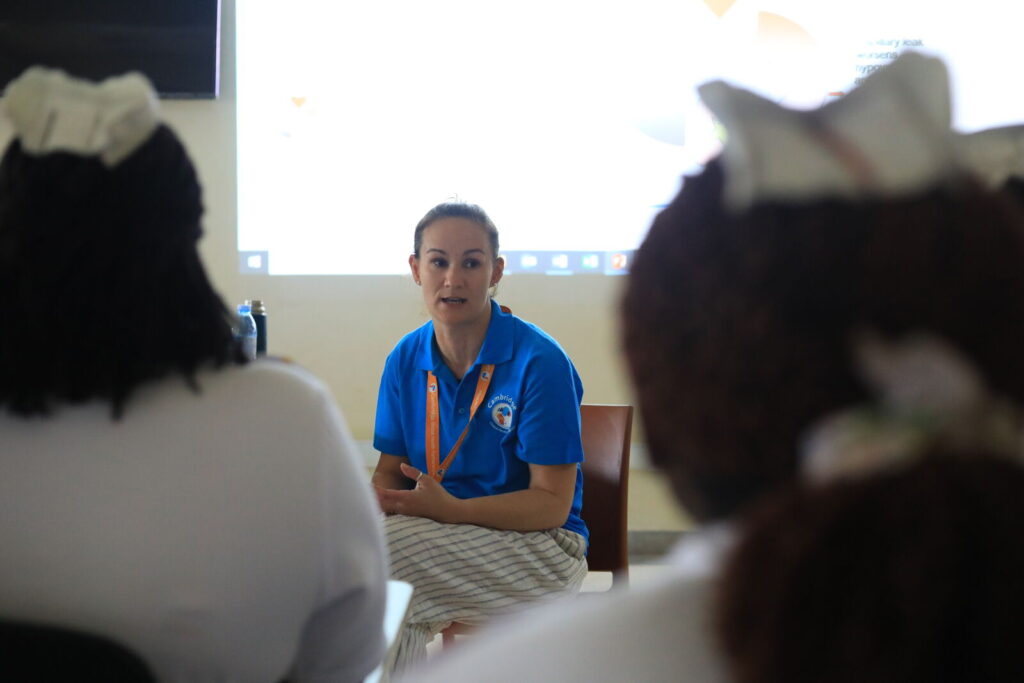
It was really special to see the friendship that has developed between two highly experienced, senior ICU nurses from completely different parts of the world, Lisa Enoch, Education Lead Critical Care at Addenbrooke’s and Sister Martha Alupo at Mulago National Specialised Hospital, the largest hospital in Kampala (pictured below, right). The friendship they have built beautifully illustrates the idea of a partnership – they fully respect and care for each other and I’m certain this enhances the shared learning and experiences both professionally and personally for all our colleagues in both Cambridge and Kampala.
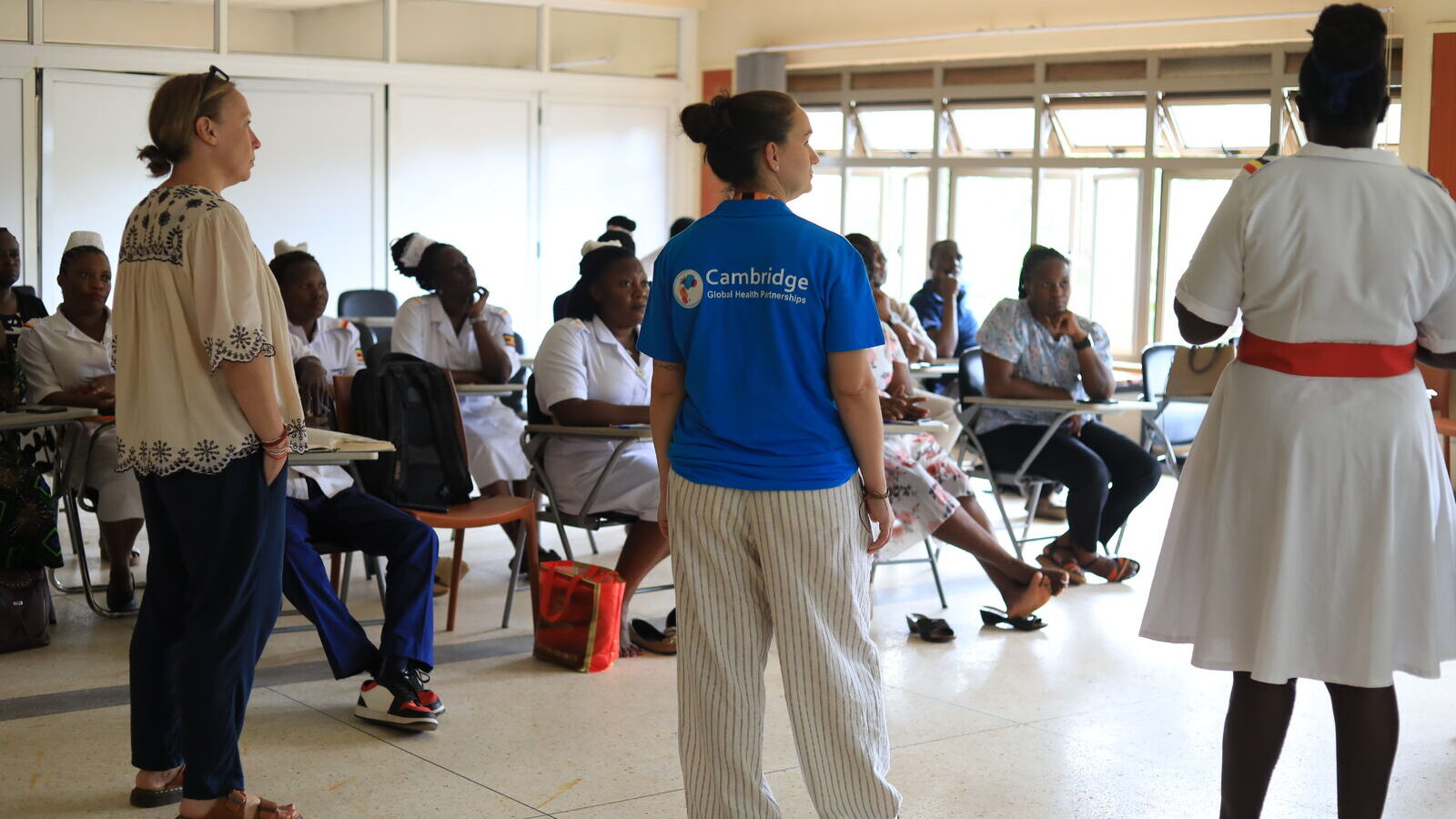
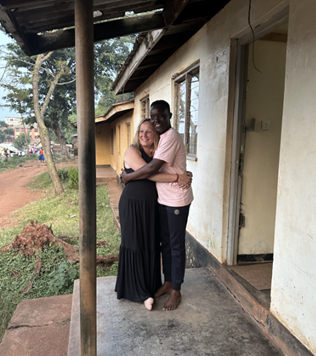
Sharing knowledge and skills
As a dual registered nurse/midwife, I was responsible to teaching critical care skills in caring for obstetric patients. I was able to combine my experience and skills in critical care nursing with my understanding of physiology/obstetric medicine/obstetric complications and deliver specialised teaching to nurses and midwives. Kawempe is a national referral hospital and as a result they see many more complex women and babies, making my skills and knowledge well suited to understanding the clinical challenges that the team face.
One of the most challenging parts of the trip was being required to deliver training on demand for different topics – often with little or no notice. This also turned out to be very rewarding, both because it gave me the confidence to recognise that I know more than I think I do and also because the Kawempe National Referral Hospital (KNRH) team were just the most wonderful, grateful people I have ever met.
My favourite experience was definitely teaching KNRH nurses and midwives basic life support (BLS). We started off with a cardiac rhythm that required CPR – and then we ‘flatlined’ the patient (possibly but, not certainly, accidentally!). Everyone in the room was laughing and these midwives and nurses were just brilliant and took it all in good humour.
I am still in contact with some of the team from KNRH and I know that 24 hours after we left, they had a cardiac arrest on the unit and they successfully resuscitated the woman. This shows how important BLS is in helping to reduce maternal deaths in Kawempe.
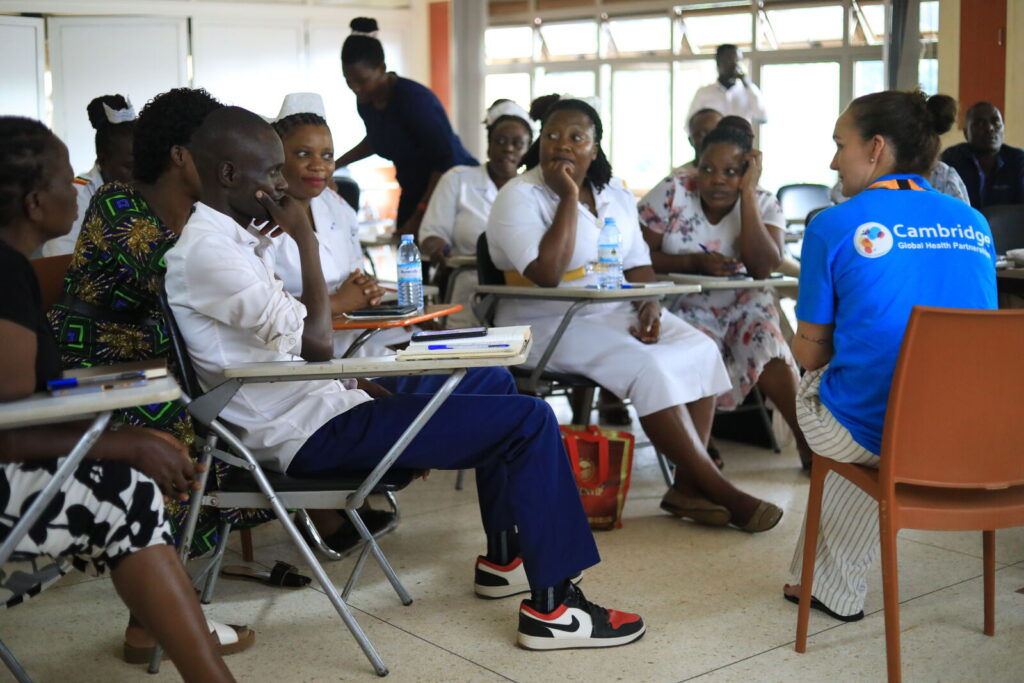
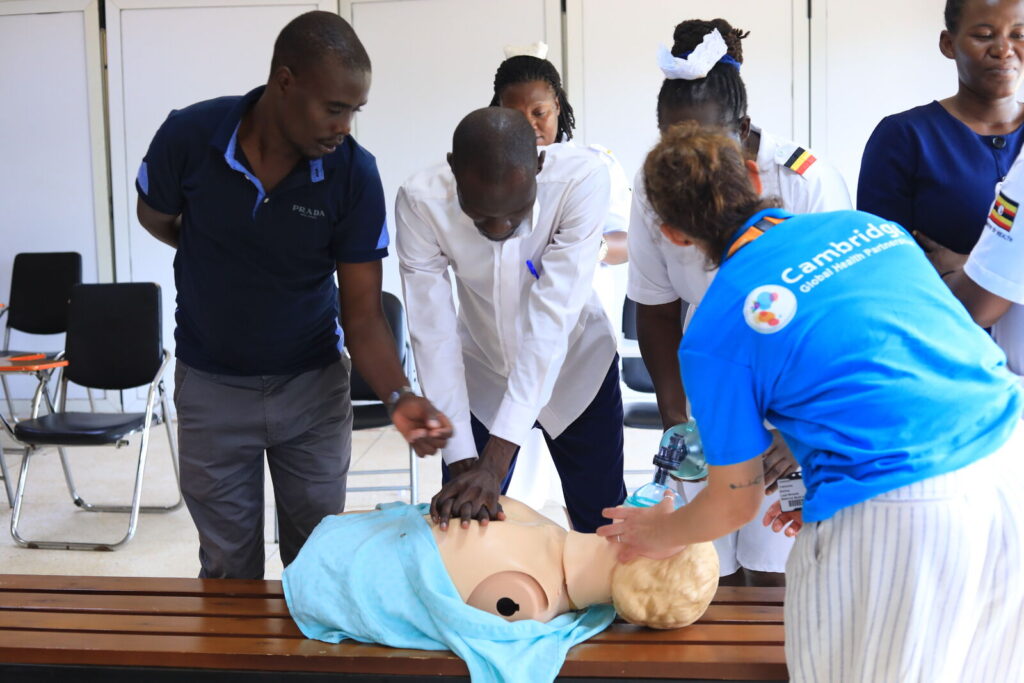
Growing in confidence
The experience was really refreshing. It has definitely created a desire for me to participate in more global health.
Historically I’m not very confident public speaking and will often spend a considerable amount of time preparing any presentation that I am requested to give. This experience has definitely improved my confidence with public speaking.
I will also be more cautious with the consumable usage in the Obstetric Close Observation unit here. The team are KNRH were very resourceful and were obviously protective of the resources that they have.
Looking ahead
I am very keen to continue participating in global health – I feel that my niche of high risk/obstetric critical care intersects with a couple of Kampala-Cambridge Health Partnership projects and I think there is more that I could contribute. I would also be keen to see whether my skills would be useful elsewhere.”
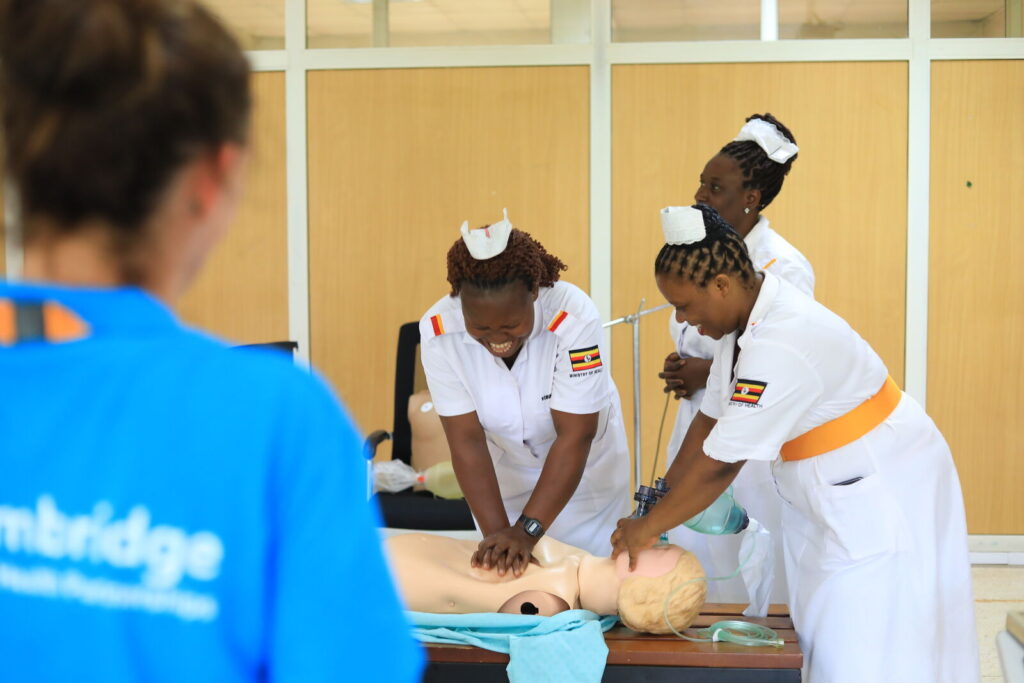
Find out more about the SCALE Critical Care project, or contact us at info@cghp.org.uk
Return to blogs

